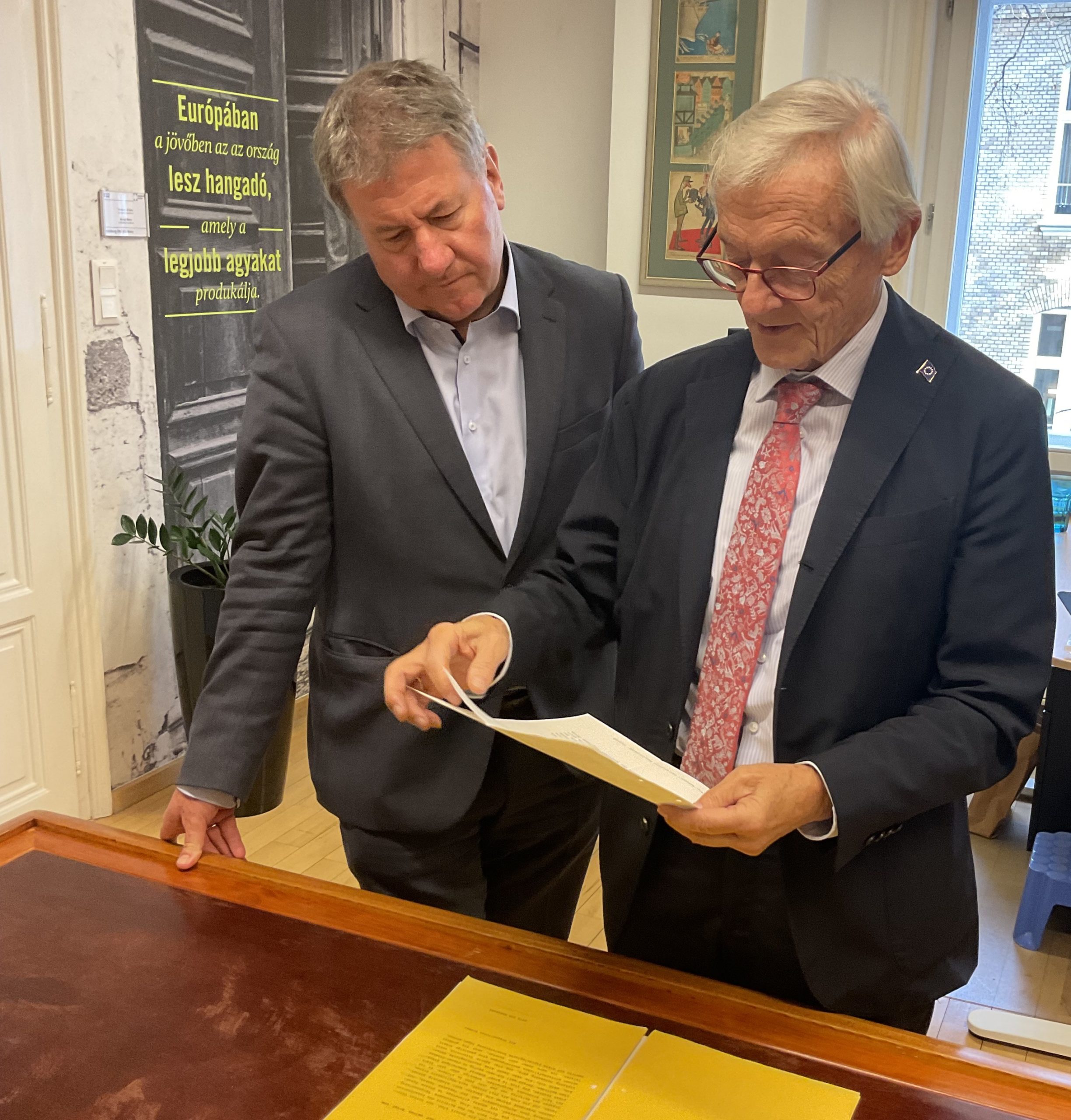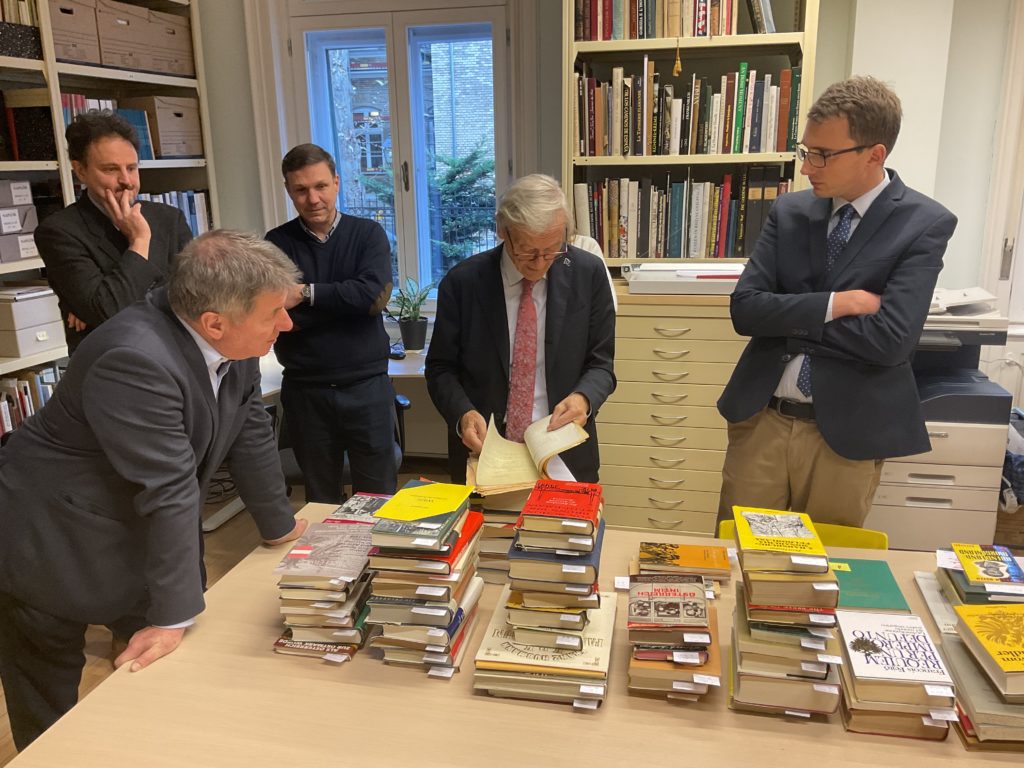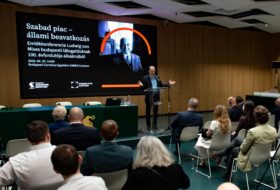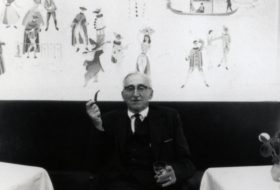The prominent and popular ÖVP (Austrian People’s Party) politician and board member of the Konrad Adenauer Stiftung is a regular participant in our programmes. He was the guest at the first Otto dinner in November 2019, commemorating the birthday of our namesake, and has since repeatedly expressed his appreciation of Otto von Habsburg’s oeuvre at our conferences.
The former Austrian Chancellor read the documents relating to his period of government (2000-2007) in our archives. He was particularly interested in the turbulent year of 2000 when his formation of a government with the FPÖ (Freedom Party of Austria) provoked a vociferous international response and an EU boycott. Otto’s stance and his role in urging restraint in the settlement of the situation were key factors in the new cabinet’s perception and acceptance. Wolfgang Schüssel was clearly delighted to browse through Otto von Habsburg’s library of historical writings, which contains a number of rare books on Austria. We also discussed with him the possible involvement of our Foundation in a conference in Vienna on the life of the Austrian-born Nobel Prize-winning economist Friedrich August von Hayek, scheduled for April 2024. (The former Chancellor is a board member of the Friedrich-August-von-Hayek-Stiftung as well.)
Less well-known is that Otto von Habsburg was also keenly interested in economic matters and was in close contact with several economists and thinkers involved in the creation of the Mont Pelerin Society (MPS), founded initially on conservative-liberal principles. He also maintained friendly relations and a lively correspondence with F. A. Hayek, Ludwig von Mises, Fritz Machlup and Wilhelm Röpke. Many of the most influential economists who shaped the Society’s programme were, peculiarly, natives of the Monarchy, and their thinking was influenced to a large extent by the workings of the former multi- and supranational empire, but most of all, by the experience of its dissolution. In 1965, at the recommendation of the then President von Hayek, our namesake was admitted to the members of the MPS and from then on, he was involved in its work for the rest of his life. On the initiative of Edwin J. Feulner, who visited our Foundation on repeated occasions, he was elected a Life Member of the Society in the mid-2000s.
We presented Wolfgang Schüssel with our publication 99 Years – 99 Pictures – Photographs from the life of Otto von Habsburg, and in connection with one of the photographs, our guest recalled his memories of the dinner he hosted in 2001 at Schönbrunn Palace in honour of the golden wedding anniversary of Otto and Regina von Habsburg. The subsequent parliamentary controversy that erupted in the wake of the evening is a vivid testimony to the distinctive resonance that our namesake’s historical figure still evokes in our Western neighbours.



